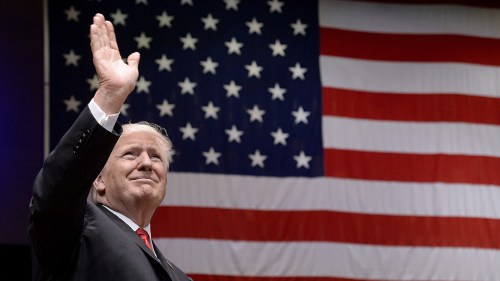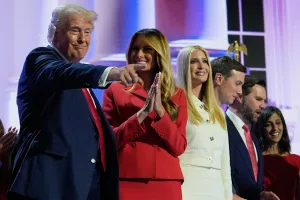Nearly two-thirds of Americans say reducing influence of political spending is a top priority: Poll
Many Americans want the president and Congress to prioritize reducing the influence of political spending on the eve of what could be the most expensive election cycle in United States history.
Nearly two-thirds of Americans said reducing the influence of political spending should be a top priority, second only to strengthening the economy and defending against terrorism, according to a new report by the social science research think tank Pew Research Center.
The 5,140 Americans surveyed from Jan. 16-21 ranked reducing the role of money in politics above other policy priorities including reducing health care costs, dealing with immigration, environmental protection and improving education.
The percentage of Americans who care about reducing the influence of political spending cut across party lines.
“While there are wide partisan differences on most policy goals, 65% of Democrats and 60% of Republicans rate this as a top priority,” Pew Research wrote.
Since the controversial U.S. Supreme Court decision in Citizens United v. Federal Election Commission in 2010 opened the door to unlimited independent spending in federal elections, political spending has skyrocketed.
During the 2008 cycle, the last presidential election before the Citizens United ruling, candidates, political parties and independent outside groups spent nearly $7.2 billion on federal elections, adjusted for inflation, according to the money in politics research group OpenSecrets.
By the 2020 election cycle, total political spending topped $16.4 billion.
With a potential rematch between President Biden and former President Trump on the horizon, the U.S. could see another election cycle with record-breaking spending.
But the flood of money into politics and its perceived influence on elected officials has left many Americans disillusioned with the policymaking process.
A separate Pew Research study of 8,480 American adults conducted in July 2023 found 63 percent of respondents said they think most or all elected officials ran to “make a lot of money.” Just 22 percent said most or all elected officials ran to address issues they care about, and 15 percent said they think these officials ran to serve the public.
The study also found 72 percent of American adults support limits on the amount of money individuals and organizations should be able to spend in elections.
As of right now, however, there is little political will to put any limits on political spending, especially since Citizens United ruled limits on independent political spending — i.e. expenditures not coordinated with a candidate — in federal elections violated the First Amendment right to free speech.
While Citizens United emphasized the need for robust disclosure of such expenditures, even efforts to stop the flow of “dark money” — political spending that seeks to influence voters without disclosing the source of the funds — have stalled in Congress.
Copyright 2024 Nexstar Media Inc. All rights reserved. This material may not be published, broadcast, rewritten, or redistributed..













